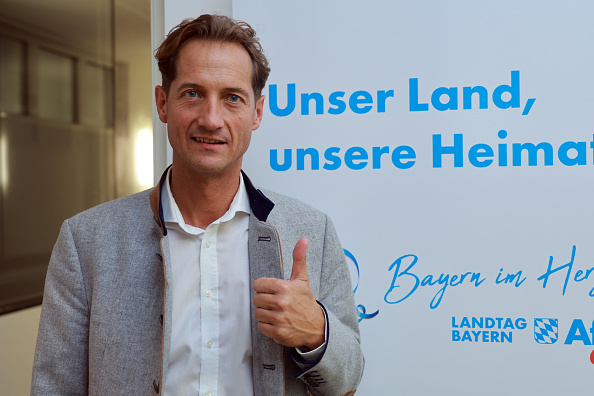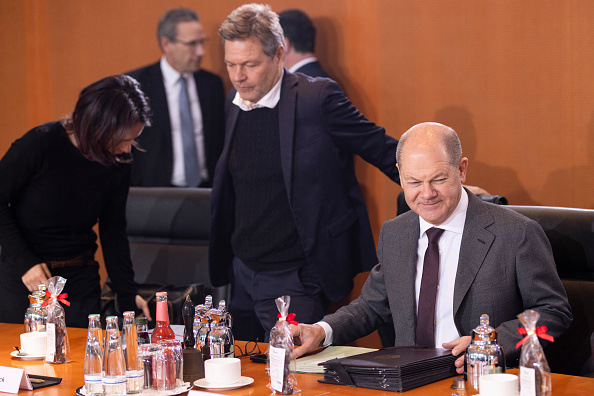As Germans appear to grow more disillusioned with mainstream parties, WerteUnion’s (Values Union) launch means the country has seen two new populist parties form this year and it is still only January.
Values Union considers itself a “Conservative grassroots movement” but will it, along with the Bavarian Free Voters and Alliance Sahra Wagenknecht – Reason and Justice (BSW), now split the anti-establishment vote, weaken support for the Alternative für Deutschland (AfD) and actually help the Christian Democratic Union/Christian Social Union (CDU/CSU)?
On January 20, Values Union, which started in 2017 as a CDU/CSU pressure group, announced its split to form an independent party.
Shortly afterwards, its chairman Hans-Georg Maaßen, said the party would contest this September’s state elections in Thuringia, Saxony and Brandenburg.
That followed Sahra Wagenknecht launching her Left-wing populist party on January 8, while the loosely organised Bavarian Free Voters also nurses ambitions to become a national force.
From origins as a group seeking to move Angela Merkel’s CDU back to what its members saw as the party’s Conservative roots in “tough market radicalism”, Values Union “is about 4,000 members strong”, Alban Azaïs, a former French air force officer who teaches German politics in Toulouse, told Brussels Signal on January 22
“And I’m sure … a lot of people will become members very quickly,” he said.
Its centre-Right positioning by Maaßen “is centre-Right, the old-positioning of the CDU”, Azaïs added.
Maaßen will be describing it as “a refoundation of the CDU”, which “had been put on the Left by Madame Merkel”, he said.
It is, perhaps, ironic that at a time when German security services have recently labelled AfD branches in Thuringia-Saxony-Anhalt as “Right-wing extremist”, Maaßen himself served from 2012 to 2018 as president of Germany’s domestic security service, the Federal Office for the Protection of the Constitution.
Maaßen’s early retirement from that role in 2018 came after he criticised what he saw as the then-Merkel government’s “naive” and “Left-wing” security and migration policies.
“The WerteUnion is a diversion,” claimed Purnaka Lohendra de Silva, who teaches diplomacy and international affairs at New Jersey’s Seton Hall University.
The question is whether the CDU and CSU can now “up their game to win back support”, especially from “militant farmers who are dangerous,, left to their own devices”, he said.
Key for them, in coming elections, is offering an “economic rescue package for the farming sector to maintain stability”, he added.
The Values Union had held an uneasy position within the CDU, especially on immigration and climate policy.
That came to a head after its North Rhine-Westphalia chair Simone Baum and deputy Michaela Schneider attended a November meeting in Potsdam with hard-Right Identitarian Movement of Austria chief Martin Sellner, at which a so-called “remigration” of Germans of migrant background was discussed.
On January 13, CDU chairman Friedrich Merz announced he would request an “incompatibility resolution” with the Values Union at the party’s next federal conference as a result.
The Values Union argued its two officials were there “as private guests and not as representatives” of the organisation.
This September’s state elections are all in the former East Germany, where the centrist parties are struggling.
The AfD leads the polls in those states, while trailing the CDU nationally.
Maaßen declared he would work with any parties “ready for a change in policy in Germany”, suggesting coalition deals with the AfD may be on the cards if he and his party can clear the 5 per cent hurdle to gain seats in any state parliament.
In Germany’s most recent polls, the AfD comes second behind the CDU/CSU, with 21.5 per cent support against 30.5 per cent for Merz’s party.
With other polls suggesting Sahra Wagenknecht’s left-wing populist party could eventually take 14 per cent, a splintering of the anti-establishment vote among three or four parties could prove Merz’s best hope for a return to power after his party’s defeat in 2021.





